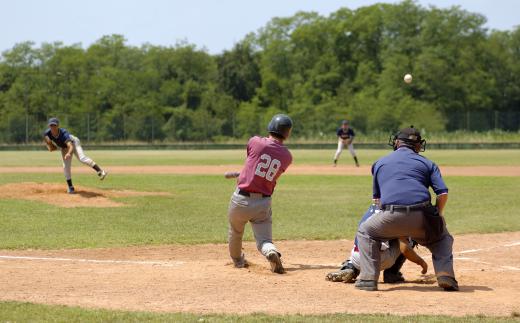The function of muscle memory is essentially to make certain physical actions easier and eventually make them possible without conscious thought. This process occurs through repetition of a particular action over a certain, usually lengthy, period of time. During this repetition or practice of movement, new neural pathways within the brain are likely created that allow the action to be performed with less and less conscious effort on the part of a person. Once a sufficient level of practice or repetition has been reached, then the muscle memory develops and future actions can be more easily performed.
While the exact way in which muscle memory develops may not be fully understand, the function of this process is fairly simple. Just about any kind of movement a person wishes to take requires a conscious thought to make his or her body move in that way. Someone sitting at a computer keyboard for the first time has to consider each key he or she wishes to press and consciously press those keys. In a similar way, someone holding a baseball bat and swinging to hit a ball for the first time typically has to keep his or her grip and swing in mind to properly connect with the ball.

These types of movements require conscious effort because no muscle memory has yet developed to simplify the process. As these movements and actions are repeated, however, muscle memory begins to form as new pathways in the brain develop. The “memory” does not literally exist within the muscles of the person’s body, but instead is found within the brain just like other forms of memory. This type of muscle memory allows a person to repeat an action that he or she has learned through practice and repetition without consciously thinking about the action.

Once someone has spent enough time typing at a keyboard, then he or she has developed sufficient muscle memory to no longer need to think about each keystroke. If that person has practiced typing without looking at the keys, then this memory even allows for accurate typing without looking at what keys are struck. Someone swinging a bat at a ball develops the same kind of memory and can begin to swing more perfectly without thinking about how he or she is gripping the bat or ensuring that the swing is level.
Muscle memory is utilized by people to allow for movement of all kinds to be learned and simplified. An infant learns to crawl and then to walk through repetition and practice, eventually creating muscle memories for these actions that can last throughout his or her entire life. If these neural pathways are damaged or disrupted, however, then these muscle memories can be lost, and someone may need to relearn an action or movement.
